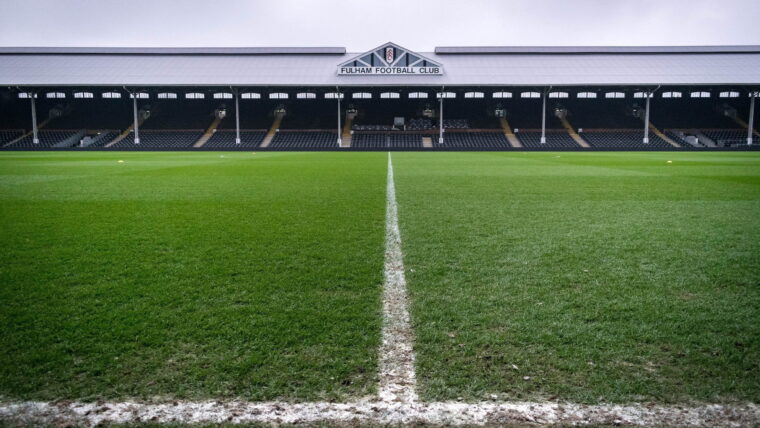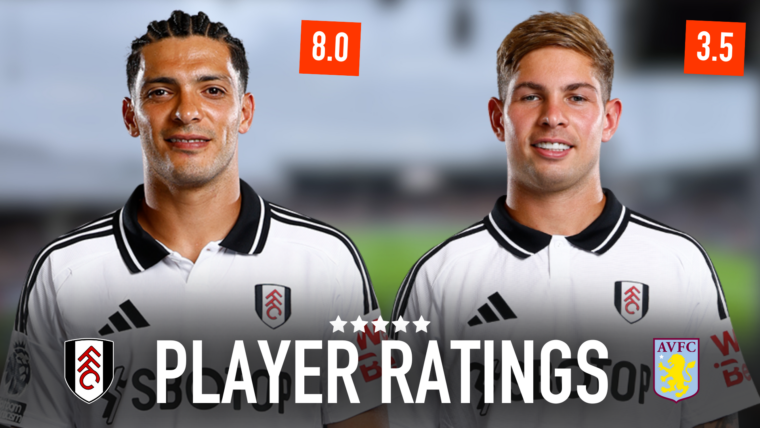How Twitter Changed Football
Written by Marco De Novellis on 10th April 2020

Twitter is a reliable source of entertainment on the day after a Fulham game. However, Twitter, and other social media channels, have changed football; how we watch it and who we watch it with – writes Marco De Novellis
I once sent a tweet after a Fulham home game which backfired. For the rest of the day, my phone buzzed with a healthy stream of abuse. At first it was funny; then annoying; then a bit depressing.
Each time I tried to ignore my phone, the Twitter app lured me in. Hundreds of angry young men and women were taking time out to offer their perspectives. I was a disgrace, ignorant, and strangely salty. All this over a game of football.
Twitter, and other social media platforms, have changed football and football fandom in a way that’s both entertaining and damaging too. Twitter has changed the consumption of football; how we interact with the club we support; with each other as fans; and what we can and can’t say.
The Good: Idiots on Twitter
After putting my head in a virtual stocks, I was back on Twitter the next day, sifting through the musings of contemporary artists like Bootlegger, Naked Martin, and Arsenal Fan TV.
What Twitter has done is allow the lunatics to take over the asylum. At every club now, previously unknown fans have become minor celebrities because of what they say and share on Twitter.
From Robbie Lyle to Andy Tate, these are the ‘made men’ of modern football; outspoken but conflicted characters; both part of the core fanbase but separate to it; both lauded and ridiculed. These are the people you see at games who you know everything about, but you’ve never properly met.
However, Twitter has also enabled a new fan culture in a positive way. It’s licenced the mobilizing of fan groups and giving modern day football fans—both as individuals and as a group—some form of agency, if not real power.
Twitter has given fans a stronger cohesive voice which can drive positive change; adding weight to campaigns for cheaper ticket prices, safe standing, mental health awareness, against homophobia, and uniting in support for fellow football fans affected by tragedy.
Embed from Getty ImagesAt Fulham, we’ve seen fans elevate Junior, the Riverside Stand flag-bearer, to cult hero status. We’ve seen supporters come together to back Fulhamish’s very own Stop The Greed campaign and the excellent work of Lee Adams, who organises lengthy walks to Fulham games to raise money for the charity CALM, which works to prevent male suicide. To varying extents, these initiatives change people’s lives for the better.
The Bad: Groupthink
However, the same united voice Twitter gives football fans can be a negative too. Groupthink, a term coined by George Orwell in 1984, describes a psychological phenomenon where individuals within a group make irrational, even immoral, decisions due to their overwhelming desire for conformity.
On Twitter, you can carefully craft a world (your feed) in which everyone has the same opinions as you—just look at people’s Twitter feeds during an election campaign. Reinforcing one’s own views in this way can feed extreme and misinformed views.
When someone is accused of a wrongdoing on Twitter – sometimes wrongly – a witch-hunt ensues. They are hounded online; addresses leaked, jobs lost, and lives impacted.
Whether or not these people have done the things they’re accused of, they should be judged through the official channels; not by the mob; not by the virtue-signaling crusaders whose actions are often as reprehensible as the original action itself.
In a social-media environment, it’s tougher to go against the grain. As soon as enough people say ‘Wenger Out’, for example, the sentiment sticks. Before long, people are holding up signs at the darts, Trump rallies, and rugby tournaments in Hong Kong.
Whilst it’s unlikely similar messages about our own manager would spread this globally, once a wave of sentiment begins it’s a very difficult tide to turn.

Managers’ jobs are at the mercy of irrational fan opinion. Waves of antipathy towards managers and players verge on personal abuse. As a result, most people within football are forced into privacy, with any minor misdemeanor punished by smart phones and a shaming culture online. In this climate, the division between footballer and fan grows ever wider.
Yet understanding what you can and can’t say on social media isn’t always so clear cut. Take the case of Paul Chambers, a 20-something who joked that he would blow up Robin Hood Airport, near Doncaster, after it was closed by snow in January 2010.
Chambers ended up in court, lost his job, and was only cleared after a second appeal at the High Court, backed by supporters including comedians Al Murray and Stephen Fry.
I’ve seen reports of Fulham fans being banned by the club for what they’ve posted on Twitter. Without wishing to comment or speculate on who’s in the right in this specific scenario, the potential to be banned for speaking your mind or punished for making jokes on Twitter leaves me uneasy.
Whilst there is nothing to excuse the impact of trolling or bullying online, what you can and can’t say at football remains a complex debate.
The Conclusion: It’s a Changing Game
So often, at Fulham and especially at bigger clubs, there’s a difference of opinion between fans who attend games and those who don’t—look at United away fans’ dedication to Ole and respectful support for Mourinho, for example.
That’s because the majority of fans who don’t attend games live, don’t watch the full 90 minutes on TV. Instead, they scroll through the Twitter posts of others; of Arsenal Fan TV nuts ranting over their latest scapegoat; of GIFs and clips of goals, skills, and freekicks; of links to YouTube player highlight reels.
Instead of forming their own opinions, these fans conform to Groupthink and a mindset where every win or loss is amplified and where opinion shifts wildly from one result to another. One day Parker is in; the next day Parker is out.
Yes, football has always been this way. But the internet, and social media platforms like Twitter, have amplified this ten times over.
Does it matter? Not really. If you’re aware of the pitfalls, the dangers and the depths of the depravity on Twitter; if you don’t take it too seriously and if you know when to put the app down; mostly, it’s a laugh, and sometimes it can even be a force for good.
Football is a volatile industry, and Twitter has just added fuel to the madness.



